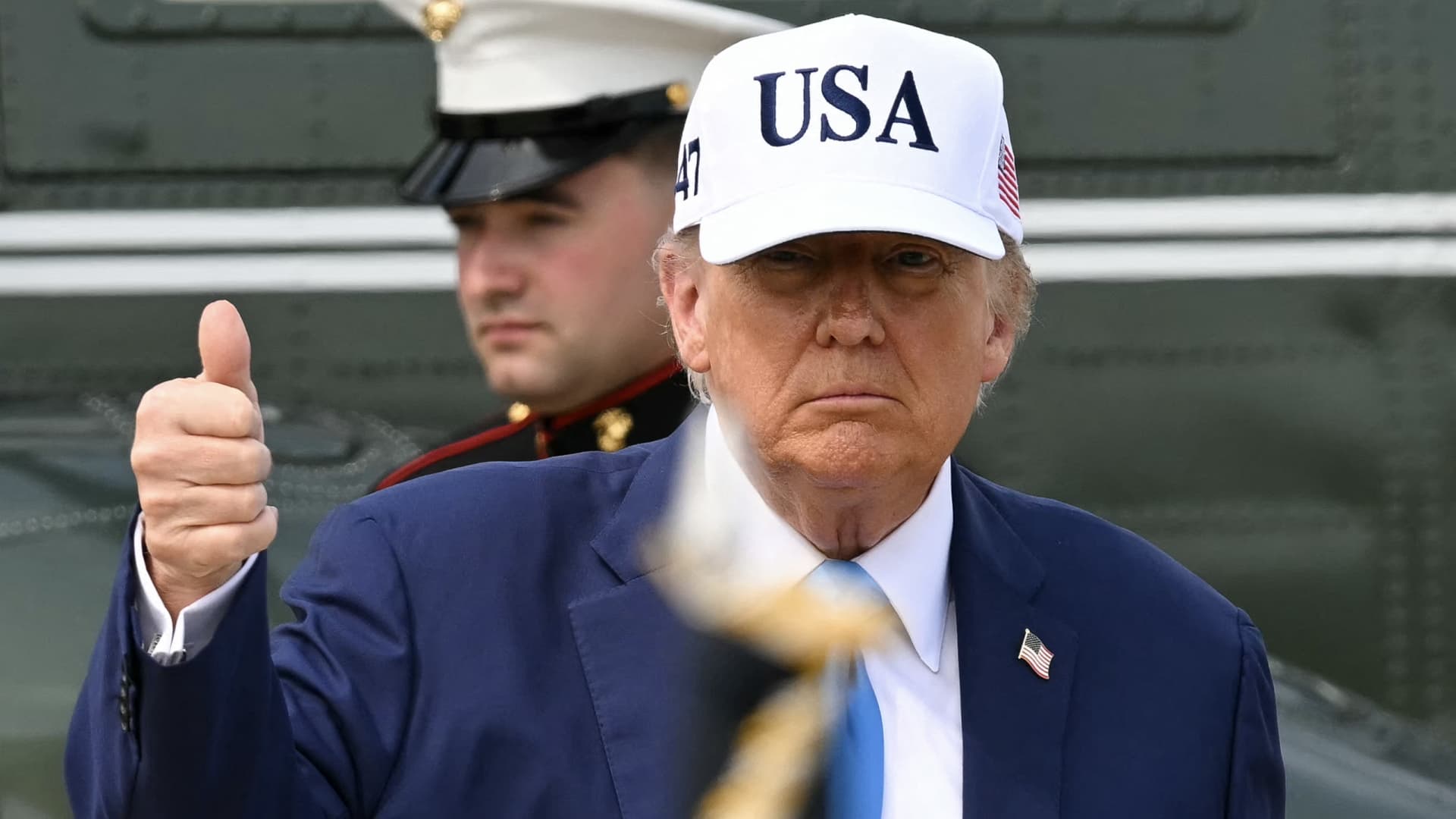Exploring the Impact and Implications of “Trump Accounts” in America’s Financial Landscape
Introducing a Novel Financial Initiative for Newborns
The Republican Party, steered by former President Donald Trump’s influence, has unveiled a unique financial innovation embedded within their recent expansive tax legislation. Known initially as “MAGA accounts” and later rebranded as “Trump accounts,” this initiative proposes government-funded investment accounts opened for newborns between January 1, 2025, and January 1, 2029. Each account starts with a $1,000 deposit from the government, aiming to plant seeds of financial security and encourage early wealth accumulation in American children. This initiative stands out in its ambition to integrate market-based investment strategies directly into the social fabric from birth.
Demystifying “Trump Accounts”: The Mechanics and Goals
At its core, the proposal sets up tax-advantaged investment accounts, resembling 401(k) plans but tailored for minors. These accounts would be automatically established, either by the child’s parents or through federal agencies such as the Treasury. The capability for oversight or partnership with prominent financial firms indicates a hybrid model of public-private collaboration. Unlike traditional welfare programs, these accounts represent a forward-thinking approach to social support—transitioning from temporary assistance to building sustainable wealth over a lifetime.
– Early Financial Planning: By initiating investment at birth, the accounts aim to cultivate a culture of saving and investment from day one, potentially narrowing persistent wealth gaps experienced by underprivileged communities.
– Tax Benefits & Accessibility: Built-in tax advantages combined with automatic enrollment strategies could overcome barriers that often prevent lower-income families from accessing wealth-building tools.
The Political Branding: Strategy and Controversy
Naming these financial tools “Trump accounts,” after an intensely polarizing political figure, is as much a marketing maneuver as it is a liability. While this branding energizes supporters by intertwining fiscal policy with Trump’s populist appeal, it also fuels concerns about partisanship infiltrating what is fundamentally a social welfare innovation.
– Supporters’ Viewpoint: The nomenclature serves as a rallying cry that reinforces Republican ideals of market-based solutions and individual empowerment.
– Critics’ Concerns: The explicit political suffix risks alienating citizens indifferent or opposed to Trump’s persona, potentially impeding bipartisan cooperation and undermining the initiative’s broader impact.
Corporate America’s Engagement: A New Public-Private Synergy
The backing by CEOs from Uber, Dell, Goldman Sachs, and other major firms signals a significant dimension to the initiative’s feasibility. Their commitment to invest billions provides not only capital infusion but also legitimacy, aligning financial markets with government-sponsored social policy.
This partnership reflects a growing trend where private sector expertise and resources are harnessed for public benefit. For Wall Street, the accounts represent the emergence of a new asset class—long-duration, mass-market investments initiated at birth that could stimulate capital markets for decades.
Weighing the Economic and Social Impact
Promising Advantages
– Bridging Generational Wealth Gaps: Starting children off with financial assets could gradually chip away at systemic inequalities rooted in disparate access to wealth accumulation tools.
– Stimulus for National Economy: Over time, increasing household wealth backed by investments may bolster consumer spending and economic resilience.
– Inculcating Saving Habits: Automatic, tax-preferred enrollment lowers entry hurdles, fostering disciplined financial behavior from a young age.
Notable Challenges
– Initial Funding Adequacy: The $1,000 initial deposit, while symbolically significant, may be insufficient on its own to generate substantial long-term wealth without additional contributions or incentives.
– Market Risks: Investment outcomes are inherently uncertain, potentially exposing families to volatility without guaranteed minimum returns.
– Implementation Complexity: Critical details—such as how funds are managed, control and access to accounts, and eligibility—remain ambiguous and subject to political negotiation.
– Political Polarization: The branding and partisan origin may complicate adoption and acceptance, limiting the initiative’s reach and effectiveness.
Embedded in a Broader Fiscal Agenda
These accounts are part of a comprehensive approximately $4 trillion Republican package balancing tax reforms and family-centric incentives. Measures like a $5,000 “baby bonus” complement the accounts, collectively aiming to encourage childbirth, promote marriage, and support demographic trends favorable to Republican policy goals. The initiative thus operates at the confluence of economic strategy and social engineering, reflecting a holistic attempt to reshape family finance and demographics.
Looking Ahead: Potential to Transform American Financial Norms
If successfully implemented, “Trump accounts” could pioneer a shift in American financial culture. Starting investment at birth introduces a radical rethinking of when and how personal finance education begins, embedding investment opportunities into the lifecycle rather than adulthood alone. Its success depends on carefully navigating political divides, ensuring equitable access, managing institutional partnerships, and communicating benefits beyond partisan labels.
The initiative may serve as a template for future policies that blend government backing with private sector investment to empower citizens financially from an early stage—potentially setting a new precedent in wealth building and economic inclusion.
Conclusion: Setting the Stage for Generational Financial Empowerment
“Trump accounts” encapsulate a bold experiment at the crossroads of finance, politics, and social policy. Despite challenges posed by politically charged branding and logistical uncertainties, the idea of granting each newborn a financial leg up is compelling. It reimagines social welfare not as temporary aid but as an investment in the next generation’s financial independence. By fostering early engagement with investment markets, these accounts could gradually transform the American economic landscape—one infant at a time—ushering in a future where wealth accumulation begins at birth.

